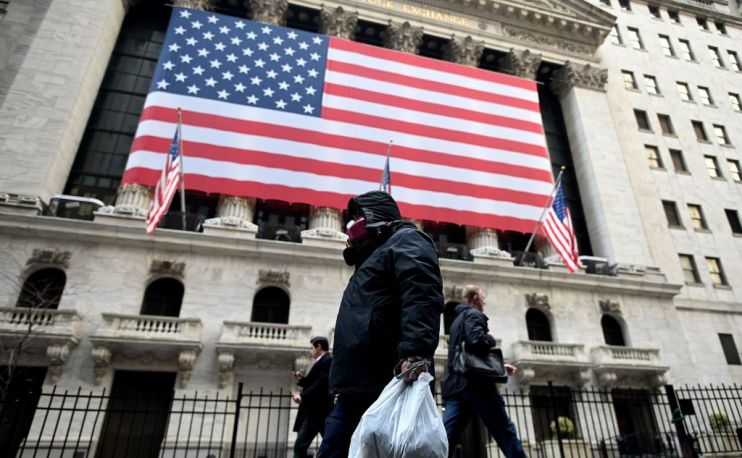US stocks jump as Congress nears coronavirus stimulus deal

US stocks have jumped after the Federal Reserve made its biggest move yet to calm the markets and boost the economy and as investors hope Congress will produce a stimulus package worth around $2 trillion (£1.7 trillion).
Wall Street’s S&P 500 index was 6.3 per cent higher, the Dow Jones industrial average had rocketed 9.5 per cent and the Nasdaq had risen 7.4 per cent.
Traders were cheered by the Fed’s statement yesterday that it would buy a potentially unlimited amount of government debt and ramp up lending support to businesses in its latest massive intervention in an economy ravaged by coronavirus.
Stocks were also lifted by hopes that Congress will soon agree on a massive fiscal stimulus package. Democrat House speaker Nancy Pelosi today told CNBC that “there is a real optimism that we could get something done in the next few hours.”
European stocks also jumped as policymakers in the world’s biggest economy edged closer to decisive action. The UK FTSE 100 was up 7.5 per cent in afternoon trading, the pan-European Stoxx 600 was 6.9 per cent higher, and Germany’s Dax had climbed 9.2 per cent.
As equities rallied, investors sold government debt, sending yields higher. The 10-year US Treasury yield rose 10 basis points (0.1 percentage points) to 0.887 per cent, while the German 10-year Bund yield rose six basis points to minus 0.32 per cent. Yields move inversely to prices.
The bottom of the market?
Sean Darby, global equity strategist at Jefferies, said the noises coming from the US were good news for markets.
“Despite the political bickering a much larger fiscal package seems to be in the works while the Fed has been aggressively expanding its monetary toolkit,” he said.
“A number of our risk indicators are peaking with only credit spreads misbehaving. Conventional market measures suggest that the market is nearing its lows.”
The dollar index – which tracks demand for the greenback – fell as investors returned to equities. The US currency has strengthened in the last few weeks as investors have sold positions in favour of holding cash.
However, analysts said it was too soon to call the bottom of a market that has plunged 30 per cent since recent highs.
Oliver Jones, market economist at Capital Economics, said: “Central bank actions have yet to quell the strains showing up across the global financial system.”
He said there is still evidence of pressure in short-term lending markets, with the cost of borrowing high.
“It is hard to see a lasting recovery in equity prices until those strains subside,” he said.